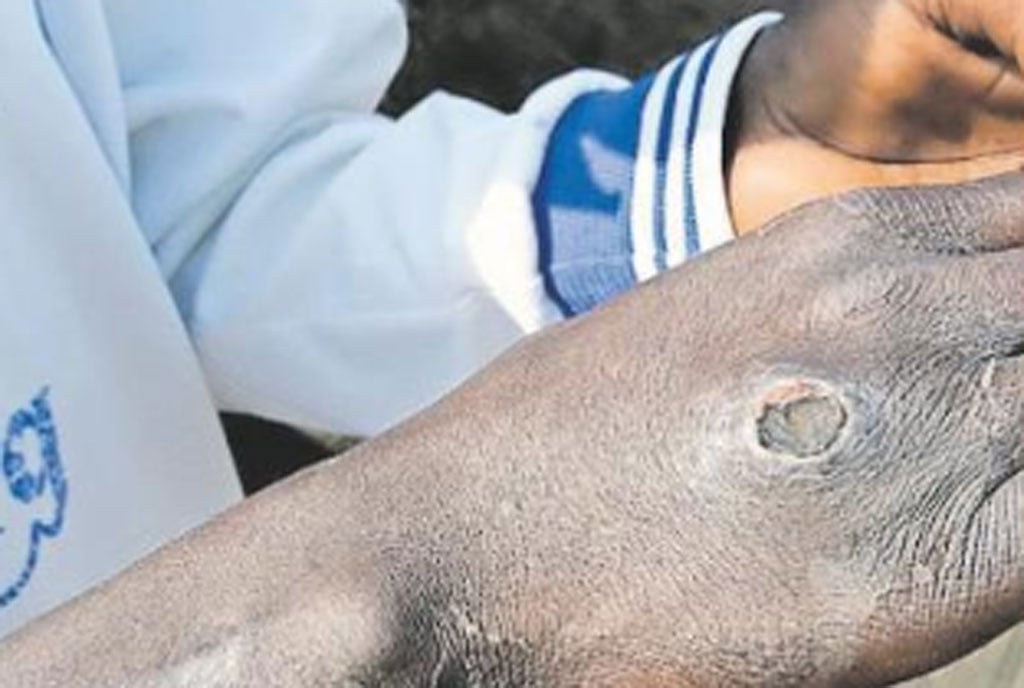Concern as anthrax strikes in Madi-Okollo

In this file photo, a man who tested positive for anthrax disease after touching carcass of an infected animal displays his hand in 2018. PHOTO/FELIX WAROM OKELLO
What you need to know:
- The surveillance teams are now making follow up of the suspected cases.
Anthrax disease has returned to haunt locals of Madi-Okollo District, with new infections being recorded among humans and animals.
According to the preliminary reports, an infection case was reported on October 7 at Olujobo Health Centre III where a 23-year-old male from Obibife Village presented signs with painful blister wounds on the right forearm.
The district surveillance focal point person, Mr Jonathan Arima, said: “The date of onset of signs and symptoms was on October 4. The patient and two others were involved in skinning a dead cow carcass on October 1 in Obibife Village, Aliba Parish, Rigbo Sub-county though with no history of eating the carcass.”
In 2018, cases of anthrax were confirmed in Rhino Camp Sub- County in Madi-Okollo District. It later spread to Odupi Sub-county in Terego District and Pawor Sub-county in Madi-Okollo.
He said the district has recorded seven deaths of animals in the previous week in Odoubu Parish and Obibife Village.
“After presenting the signs and symptoms, the patient was investigated and samples were collected and sent through the hub system to Uganda Virus Research Institute (UVRI) Arua and tests done. And on October 8, we received the result showing that he tested positive for anthrax,” he said.
Fighting the disease
The surveillance teams are now making follow up of the suspected cases, conducting sensitisation to communities and health staff of Olujobo HCIII and orientation to intensify surveillance throughout Rigbo Sub-county among refugees and the host community.
The district is stuck with inadequate vaccines to carry out massive animal vaccination. There is also a shortage information and education materials that could be used for sensitisation, among others.
Mr Kalisto Andama, a resident of Odoubu Village in Madi-Okollo District, said: “Our people love eating meat from dead animals because they do not want food to be wasted. This can be dangerous to them. People need adequate sensitisation in order to fight the spread.”
Veterinary doctors said a single dose of the vaccination costs Shs1,500 and this provides immunity to the animal for about one year. It can be controlled through routine vaccination. The farmers have been told to report cases of sudden deaths of animals where there is presentation of blood oozing from nostrils and anus.




